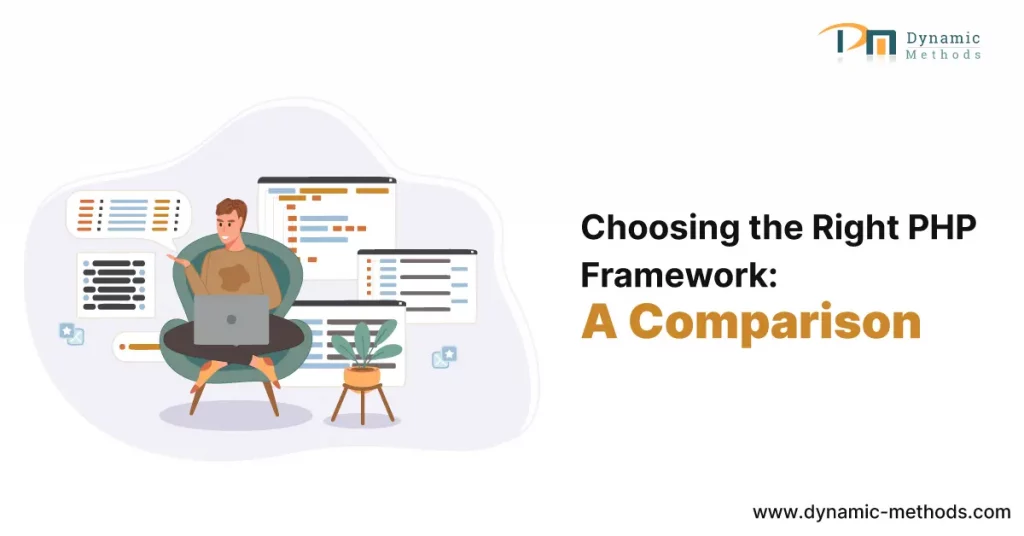
Introduction
Choosing the right PHP framework for web development project can be a daunting task. With a wide array of options available, it’s essential to understand the features, benefits, and drawbacks of each framework. In this comprehensive comparison, we will explore some of the most popular PHP frameworks, guiding you towards making an informed decision based on your project requirements.
Understanding PHP Frameworks
1. What is a PHP Framework?
A PHP framework is a collection of libraries, tools, and components that provide a structured and standardized way to develop web applications using the PHP programming language. It offers a foundation for building robust, scalable, and maintainable websites or web applications by providing predefined structures, conventions, and reusable code.
2. Benefits of Using a PHP Framework:
Using a PHP framework brings several advantages to the development process. It enhances productivity, promotes code organization, improves security, and simplifies maintenance. Additionally, frameworks often provide features such as database abstraction, form validation, and session management, reducing the need to reinvent the wheel for common tasks.
3. Factors to Consider When Choosing a PHP Framework:
Before diving into the comparison, it’s crucial to consider your project’s specific requirements. Some factors to evaluate include scalability, performance, community support, learning curve, development speed, flexibility, and customization options. Assessing these aspects will help you narrow down your options and select the most suitable framework.
Laravel: The Powerhouse of PHP Frameworks
1. Overview of Symfony:
Symfony is a highly flexible and scalable PHP framework that emphasizes code reusability and maintainability. It follows the MVC pattern and offers a modular structure that allows developers to choose only the components they need, making it suitable for both small and large-scale projects.
2. Features and Benefits:
Symfony provides a wide range of features, including a powerful dependency injection container, form generation and validation, built-in testing tools, and excellent database support. It prioritizes extensibility and interoperability, making it an excellent choice for complex enterprise applications.
3. Performance Analysis:
Symfony has a reputation for excellent performance. It leverages various caching mechanisms, supports HTTP caching, and offers optimizations to ensure optimal speed and efficiency. However, the overall performance can vary depending on the specific components and configuration used.
4. Community Support:
Symfony has an active and mature community. It offers comprehensive documentation, an extensive library of bundles (reusable components), and a dedicated marketplace. The community’s expertise and contributions make Symfony a reliable choice with reliable support.
CodeIgniter: The Lightweight PHP Framework
1. Overview of CodeIgniter:
CodeIgniter is a lightweight and beginner-friendly PHP framework that prioritizes simplicity, performance, and a small footprint. It’s known for its ease of use and minimal configuration requirements, making it an excellent choice for small to medium-sized projects.
2. Features and Benefits:
CodeIgniter offers a straightforward yet powerful toolkit that includes a database abstraction layer, form and data validation, session handling, and caching. It provides excellent performance, thanks to its lean structure and minimal overhead. It’s also known for its exceptional documentation.
3. Performance Analysis:
CodeIgniter excels in terms of performance due to its lightweight nature. It offers fast execution times and minimal resource consumption. However, as it prioritizes simplicity, it may lack some advanced features found in other frameworks.
4. Community Support:
CodeIgniter has an active community, although not as large as some other frameworks. It provides detailed documentation, a user guide, and a forum where developers can find support and share their experiences. Despite its smaller community, CodeIgniter continues to have a dedicated user base.
Yii: The High-Performance PHP Framework
1. Overview of Yii:
Yii is a high-performance PHP framework known for its speed, security, and rich feature set. It’s designed to handle large-scale applications with complex requirements while maintaining excellent performance and code organization.
2. Features and Benefits:
Yii offers features such as a powerful ORM (ActiveRecord), scaffolding for rapid prototyping, RESTful API development, role-based access control, and caching mechanisms. It prioritizes performance and security by implementing caching, input validation, and secure coding practices.
3. Performance Analysis:
Yii stands out for its exceptional performance. It employs various caching techniques, supports query caching, and utilizes lazy loading to optimize resource usage. Yii’s performance makes it an ideal choice for applications with high traffic and demanding performance requirements.
4. Community Support:
Yii has an active community that provides extensive documentation, tutorials, and forums. The community actively maintains the framework and contributes to its growth. Yii’s community support ensures that developers can find help and resources when needed.
CakePHP: The Rapid Development PHP Framework
1. Overview of CakePHP:
CakePHP is a rapid development PHP framework that focuses on simplicity, convention over configuration, and a streamlined development process. It follows the MVC pattern and offers a set of tools and conventions to accelerate application development.
2. Features and Benefits:
CakePHP provides features like scaffolding, database abstraction, flexible caching, validation, and security. It promotes rapid prototyping and code generation, allowing developers to build applications quickly. It also offers a flexible ORM for database interactions.
3. Performance Analysis:
CakePHP performs well in terms of speed and efficiency. It leverages caching mechanisms, supports database query caching, and provides options for optimizing performance. However, it’s important to consider specific performance requirements and the impact of rapid development features.
4. Community Support:
CakePHP has an active and supportive community. It provides comprehensive documentation, tutorials, and a vibrant forum for discussions. The community-driven nature of CakePHP ensures that developers have access to resources and assistance while working with the framework.
Comparing PHP Frameworks: Which One to Choose?
1. Performance and Scalability:
When considering performance and scalability, Laravel, Symfony, and Yii are strong contenders. They offer caching mechanisms, optimization techniques, and support for high-traffic applications. However, the best choice depends on the specific performance requirements of your project.
2. Community and Documentation:
Laravel, Symfony, and CodeIgniter have well-established communities with extensive documentation and resources. Laravel and Symfony, in particular, have large and active communities, making it easier to find support and solutions. However, all frameworks discussed have dedicated user bases that can provide valuable assistance.
3. Learning Curve and Development Speed:
CodeIgniter and CakePHP are known for their simplicity and ease of use, making them ideal for beginners or projects with tight deadlines. Laravel, Symfony, and Yii offer more extensive feature sets and may have a steeper learning curve. Consider your project’s timeline and the team’s expertise when weighing these factors.
4. Flexibility and Customization:
Symfony and Yii prioritize flexibility and customization options, making them suitable for complex enterprise applications. Laravel also provides a high degree of flexibility, allowing developers to tailor the framework to their needs. CodeIgniter and CakePHP, while less flexible, offer simplicity and convenience for rapid development.
5. Best PHP framework for e-commerce websites:
If you’re specifically looking for the best PHP framework for e-commerce websites, consider options like Laravel, Symfony, and Yii. These frameworks provide features for building robust and scalable e-commerce platforms, including database management, security, and integration with popular e-commerce solutions.
Conclusion
Choosing the right PHP framework is crucial for the success of your web development project. By considering factors such as features, performance, community support, and your specific project requirements, you can make an informed decision.
Whether you prioritize rapid development, high performance, or flexibility, there’s a PHP framework out there that suits your needs. Evaluate the options presented in this comprehensive comparison and take a step towards building robust and efficient web applications.
Ready to start your web application development project? Contact us today and let our experienced team assist you in selecting and implementing the perfect PHP framework for your needs. We’re here to help you succeed!


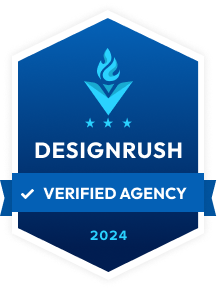
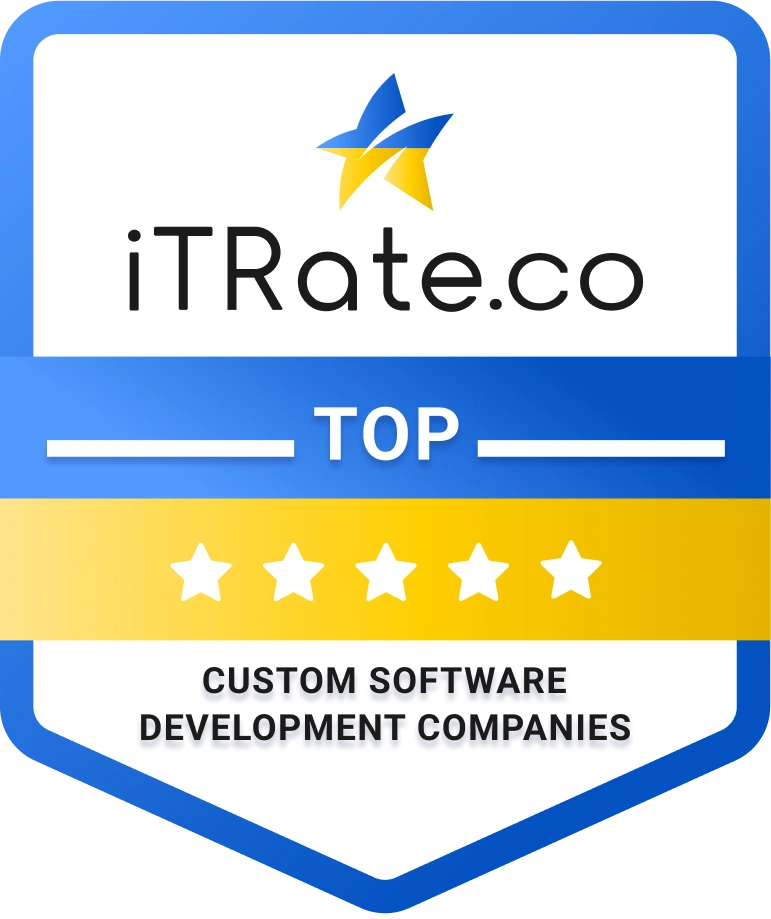
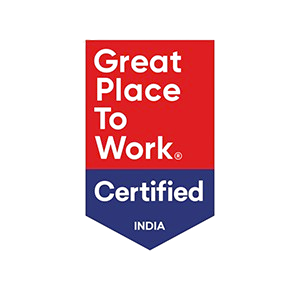


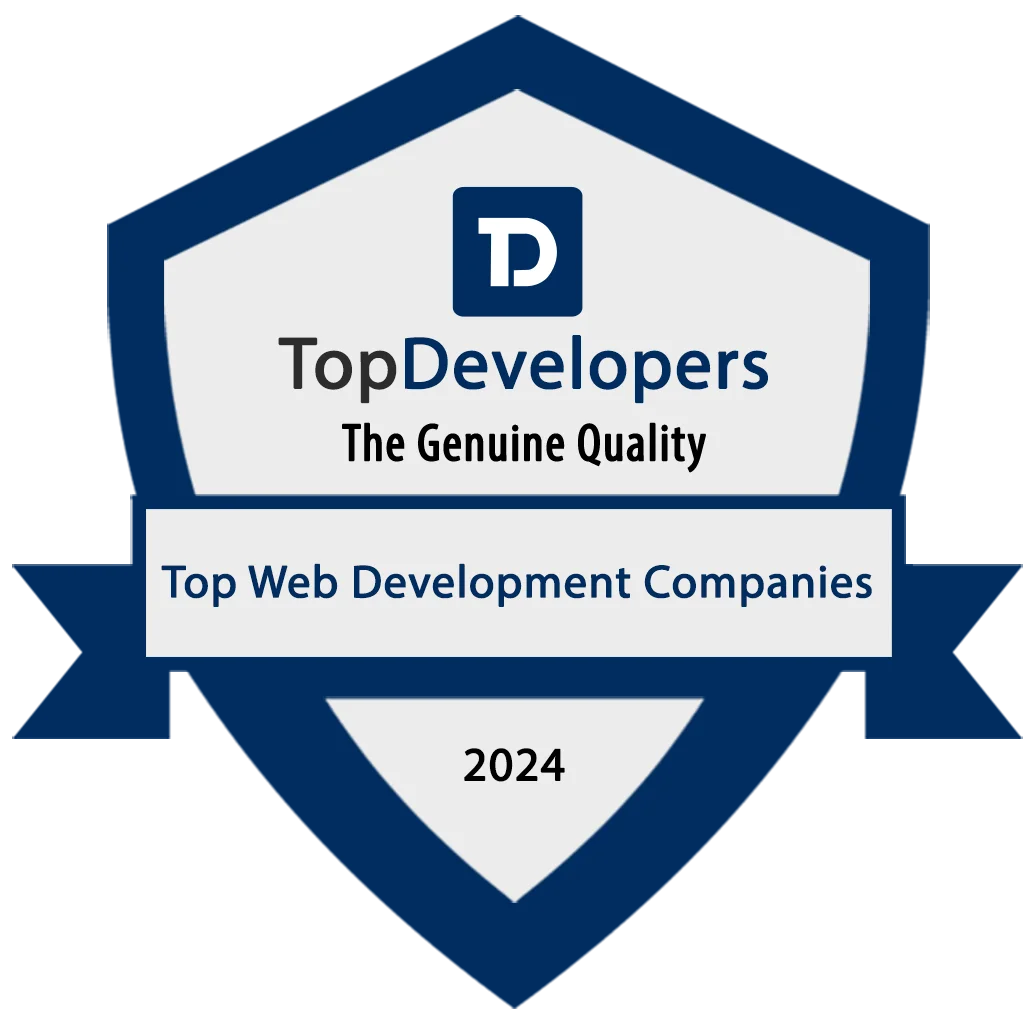
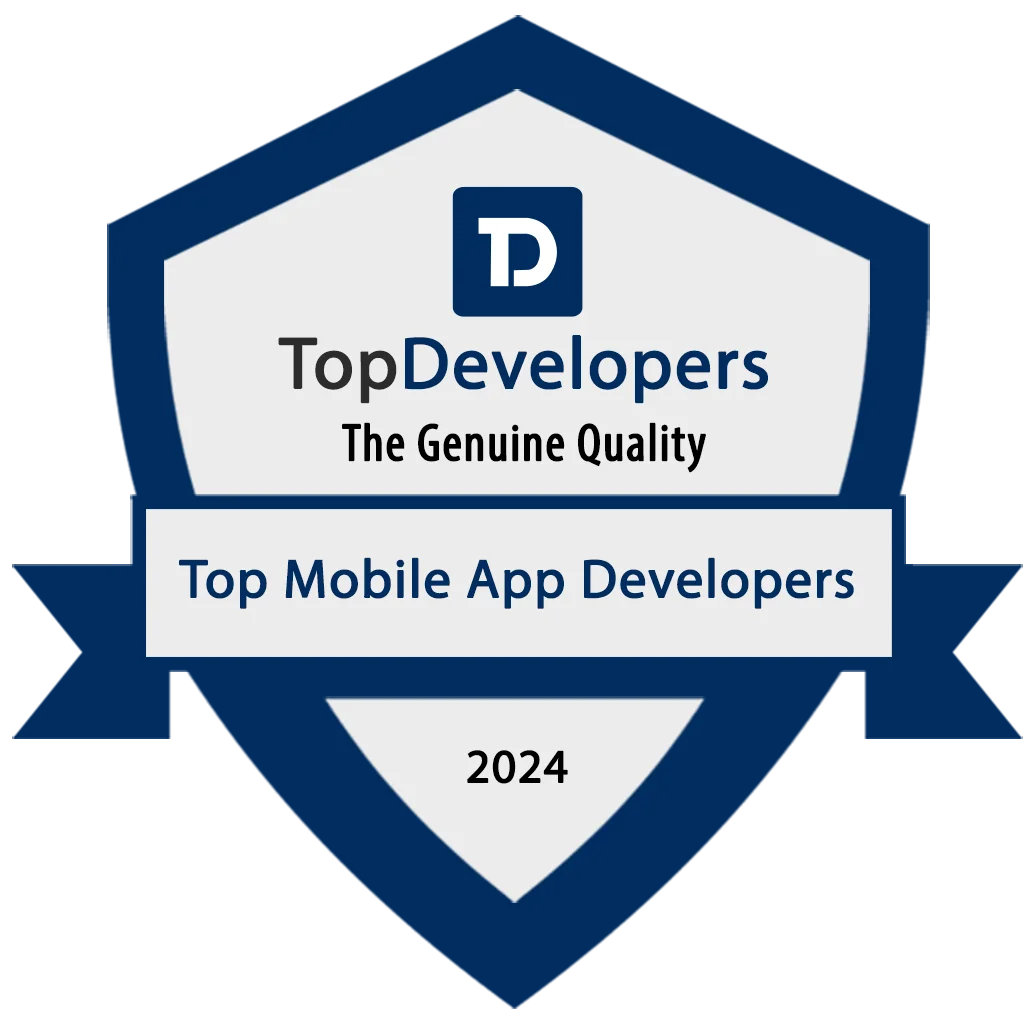
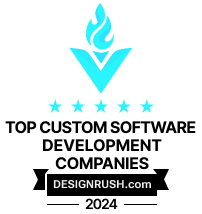
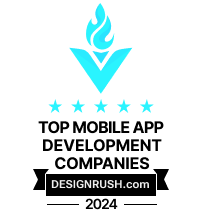
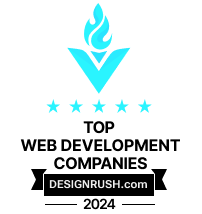
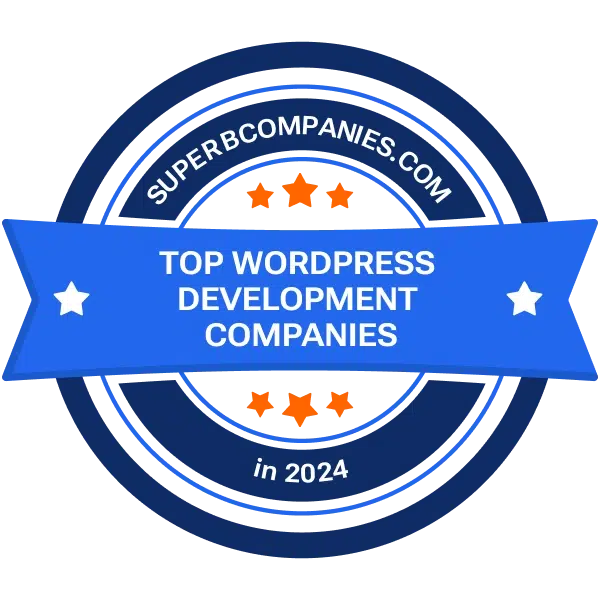
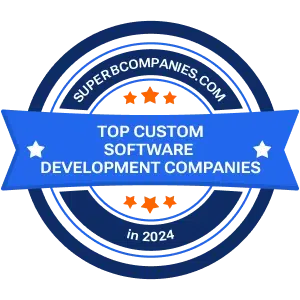
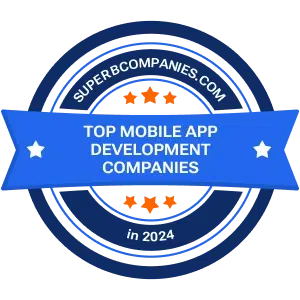





Thanks for sharing. I read many of your blog posts, cool, your blog is very good.
Thank you for reading!
Thanks for sharing. I read many of your blog posts, cool, your blog is very good.
Thank you for your kind words and reading the blog post! I’m glad you found them interesting. If there is any topic that interests you or you have any questions, feel free to let me know. Your feedback is greatly appreciated!
Your point of view caught my eye and was very interesting. Thanks. I have a question for you.
I’m glad you found it interesting! Please feel free to ask your question, and I’ll do my best to provide a helpful answer.
Your article helped me a lot, is there any more related content? Thanks!
I’m glad to know that the article was useful! Although I can provide information on many topics, knowing more about your specific interests will help me guide you to relevant content. Can you tell me what topic or aspect you are particularly interested in? This way, I can provide more focused advice or information. Thank you for your feedback!
Can you be more specific about the content of your article? After reading it, I still have some doubts. Hope you can help me.
Thank you for your feedback! Please let me know your specific doubts, and I’ll be happy to clarify them.
Thank you for your sharing. I am worried that I lack creative ideas. It is your article that makes me full of hope. Thank you. But, I have a question, can you help me?
Thank you for your sharing. I am worried that I lack creative ideas. It is your article that makes me full of hope. Thank you. But, I have a question, can you help me?
Thanks for sharing. I read many of your blog posts, cool, your blog is very good.
Thank you for your kind words! I’m glad you enjoy the blog. If you have any specific topics you’d like to see covered, please let me know.
I don’t think the title of your article matches the content lol. Just kidding, mainly because I had some doubts after reading the article.
Thank you for your feedback! I’m glad you found the article interesting. If you have any specific doubts or questions about the content, please let me know, and I’ll be happy to clarify and provide more information.
Your article helped me a lot, is there any more related content? Thanks!
I’m glad the article was helpful! For more related content, you can check out more posts on my blog filtering web application category.
Can you be more specific about the content of your article? After reading it, I still have some doubts. Hope you can help me.
Thank you for reaching out! I’d be happy to clarify any doubts. Could you please specify which parts of the article were unclear or which details you need more information about?
Your point of view caught my eye and was very interesting. Thanks. I have a question for you.
I’m glad you found the perspective interesting! Feel free to ask your question—I’m here to help.
Thanks for sharing. I read many of your blog posts, cool, your blog is very good.
Thank you! I’m glad you enjoy the blog and find it valuable.
Thank you for your sharing. I am worried that I lack creative ideas. It is your article that makes me full of hope. Thank you. But, I have a question, can you help me?
Thank you for your kind words! I’m glad the article inspired you. Please feel free to ask your question—I’m here to help!
Thank you for your sharing. I am worried that I lack creative ideas. It is your article that makes me full of hope. Thank you. But, I have a question, can you help me?
Thank you! I’m glad the article inspired you. Feel free to ask your question—I’d be happy to help!
Thank you for your sharing. I am worried that I lack creative ideas. It is your article that makes me full of hope. Thank you. But, I have a question, can you help me?